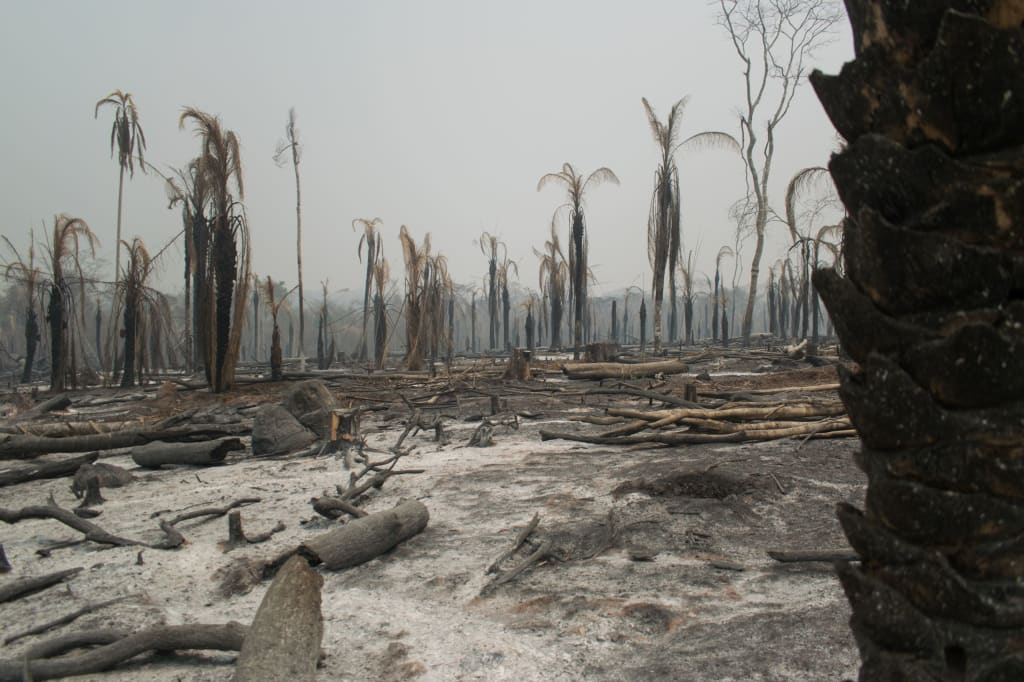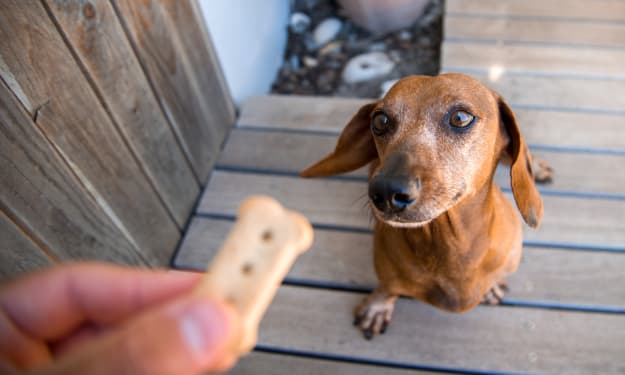The Uninhabitable Zone
A World After Warming

A superheated humid airstream slipped under the silent sails of the white electric aircraft encapsulating Urduja, traveling low over lands once familiar to some once upon a time, but now alien to most life. Long ago, the rainforest floors wilted, burned, and eroded, leaving behind a vast horizon of charred forest and expansive detritus, with even invasive hardy savannah grasses stunted and browned, struggling to cope. Grayscale were the skies, with the vaguest hint of blue. On crisp white letters somewhere over her retina HUD displayed 41 degrees Celsius and 43% humidity. Urduja knew that south of her destination in Bogota, once existed a vast rainforest stretching innumerable horizons, a cornucopia of life, teeming with a density of sounds and smells, of light particles shimmering off canopies and flowers.
Now it and almost all equatorial regions on Earth belong to the Uninhabitable Zone, a climate so inhospitable, only societies fortunate enough to afford advanced technology to cocoon themselves can survive.
A knot in the center of Urduja’s stomach turned, a grating internal resistance towards overcoming what she’s been avoiding her whole life. "For 30 years, I never wanted to go back to a place like this," she thought. Long ago she’d reexperienced, reprocessed the intrusive memories that emerged in the most inopportune moments, flashing back towards Manila and the Typhoon, feeling the surges of adrenaline and burning tension in her forehead. All these now reflected with a learned detachment, a sense of steely resolve for preventing others from repeating her experiences.
As the electric jet climbed, the temperature lowered tolerably. Peeking over the decomposed horizon she could see a cluster of broken glass spires. Upon magnification, they rendered into a strange twisted foam, like insane Jenga towers. "How are they still standing?" she wondered.
Bogota now existed as a wilted brown drought-stricken elevated plane, barely within a small circle of habitability, a receptacle for internal and external migration from adjacent countries. Still its remaining populace lived in shanty towns and through high walls cried for help, seeking asylum in the safety of the Northern Countries from its own decades of anarchy and civil war. A large volunteer force from the remains of the UN operated solar shelters, evacuating people from refugee camps.
Through her neural lace, Urduja received automatic translations of a torrent of data and multiple simultaneous messages, one of which read: “Welcome Urduja, my name is Antonella [AI notation]. We’ve diverted your path and sent you spatial coordinates of restricted airspace zones. There is increased terrorist activity in the northwest districts; we need help convincing 213 people held up in walled enclosures in El Nogal to head south towards Camp 5 for evacuation. Please steer clear of the desalination pipeline. Your team is expecting you at Camp 5.”
"Well I guess it's time to meet them," she concluded.
Urduja’s center of vision tore open in an expanding circular portal of rainbow light glare, until she entirely viewed the center of a dusty open space, observing surrounding automated vehicles and drones of various forms distributing crates of food and water towards vast expanse of tents and air-conditioned solar shelters.
Her breathing became shallow, eyes widening, a result of instinct no doubt. She looked around in a double-take. Her body in the jet, her mind here, but her gut... was in the past. “I was like these people once, looking at me.” She scanned the tents lost in thought.
“Urduja? Hello.” She jerked slightly, startled. A woman with dark skin, jet black hair, and a bead on her forehead bowed slightly and gently with hands clasped. Urduja smiled faintly. The woman spoke in an exhausted Punjabi accent, “I’m Neeta. We’ve been trying to convince a few hundred people around the skyscrapers in El Nogal to come over here, but they’ve been hesitant. As you know, some people here can’t see you yet.”
“So I’ve heard,” Urduja responded, “I’m due to land with you at El Nogal in 15 minutes. What specifically are they fearing? I don’t know what happened recently.”
"Though I have an idea," she thought.
“You’ll see. Follow me.”
The two walked through the tents, witnessing a startling proportion of elderly and young children and new arrivals emaciated with different kinds of burns, lost hair, and swelling, who were escorted by medical AI.
“I thought this might be something good to share. We finally stopped the warming,” Urduja glanced down at the ground.
“I wished that helped what’s happening here,” Neeta mused.
She gestured toward someone in a tent. “Fernando was in the northeast recently.”
A tan-skinned man in his late 30s with chemical burns stepped forward, stammering, and wheezing. He spoke slowly, “L-l-last week, they, uh--- [the terrorists] almost m-made it to the pipeline, demanding sole access to the water.” He paused. “Some people started coughing and vomiting in Tabora after seeing a black m-metal mass eating the ground and spreading.”
He rested, catching his breath. “I was in those buildings not long ago.” A repressed tinge of fear covered his face. “Don’t send drones with supplies, we don’t trust them. It could be explosives.”
-----
Adjacent to an eroded brown mountainside, Urduja’s jet weaved down the twisted and crumbled towers, morphing and twisting its wings down, its legs gently landing in the center of the road.
While the rest of the group searched other buildings in the block, Urduja wandered along jagged metal and glass shards in the lonely valley of concrete and brick. Omnipresent were reflective piles of metal foam armored drones in varying sizes, mounted with weapons and aerosol canisters. The tens of thousands appeared to have charred holes passing through melted electronics, some hit on the center, others propellers grazed. Parts of guns and broken robotic frames, legs, and sensors littered the streets.
Sparkling atop a mass of metal in front of a large tower’s steps rested a vaguely round object with a green jem in the center. Urduja suspiciously peered around to her left and right, gazing for blocks into the hazy gray skies. She clutched the silvery heart shaped locket, feeling its ridges like someone would reading braille. Noticing a seam, she opened the locket and its letter inside.
February 14, 2066
“My love;
I hope that you are still okay and I desperately want to be with you. This journey has been very hard and with many roadblocks. The government here [in Columbia] has shut down the internet and I will never be able to reach America if I’m tracked all the time. I can hardly breathe here and every country is putting up borders. I promise you that once I make it with an income and a place to be, I’ll come for you. I’m doing this to keep you safe. I hope you find this as my present. Please don’t give up. I love you dearly, and hope that someday we can return to Manaus. Have faith in God, only he knows where our paths will come.
With you in my heart”
Urduja slumped on the road, solemnly shedding a tear, before reflexively gaining her strength to approach the building. She had a purpose to save lives after all. Some of the survivors, having watched her read the letter, rounded an hidden corner of the building into view.
She beckoned, “My name is Urduja! I am from the UN Peacekeeping Core, I have come to help you! The Liberation Front has cleared this area and we have food, water, and shelter if you come with us!”
As soon as the people stepped outside, Urduja noticed something wrong in the corner of her eye. She snapped her head over, zooming in magnification 1km away to a cloud of battered drones and armed jaguar-like machines emerging from the rubble.
“Back in, now!” Urduja screamed.
The deranged pack bolted towards them at 30 meters per second, wildly firing weapons.
She leaped for cover.
Suddenly, a stream of pulsating, vibrating light waves radiated from the sky, erupting the drones in precise smoke, and they plummeted into the ground. The sprinting robots’ legs melted, twitched and lost balance, its inertia skidding them along the ground in sparks before abruptly spiraling and catching fire.
[Antonella] speaking directly to Urduja, "My apologies. We’ll be more careful next time."
About the Creator
Beau Garland
Preserving the future. Improving wellbeing for individuals and communities.






Comments
There are no comments for this story
Be the first to respond and start the conversation.